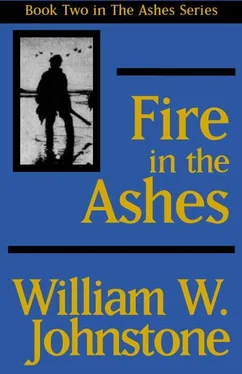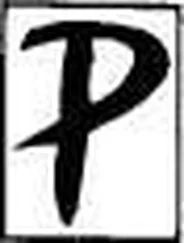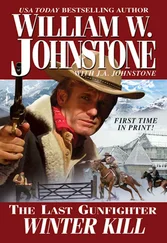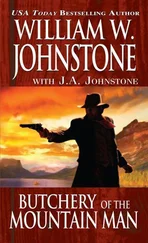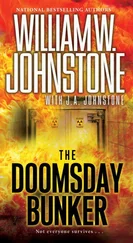“No, sir,” General Franklin stuck out his chin. “We are not.”
Al Cody paled at this, fighting back hot anger welling up inside him. He remained silent.
Lowry sat back in his chair and stared at the Joint Chiefs. He returned his gaze to the Marine. It was very quiet in the room. When the VP spoke, his words were barely audible. “Would one of you men mind clearing that up just a bit?”
Marine Corps looked at Navy, and Navy glanced at Army, Air Force, and Coast Guard, receiving a slight nod from each man. Admiral Calland lit a cigarette and leaned back in his chair. “May I speak frankly, Mr. Vice President?”
“By all means, Admiral, please do.”
“Mr. Lowry, we are all aware of the feelings that exist between you and the president. We are equally aware of the power play now going on in the capitol. The military had to take control of this nation back in ‘88—I hope to God we won’t ever have to do that again. And right now, sir, we have no intention of doing that. But…” he let his words with the implied threat trail off into silence.
The admiral tapped his cigarette ash into the ashtray on Lowry’s desk. “Now then, Mr. Lowry, the Rebels have no beef with the military, and we have none with them. We are not attacking any of their bases—even though we know where most are located—and they will not attack any of our bases.”
“Then you all have been in communication with the Rebels?” Cody asked, his face flushed with anger.
“We have.”
“Traitors!” the FBI director shouted.
General Franklin looked at the man. “How would you like me to slap your fucking teeth down your throat?”
Cody leaned back in his chair. He not only knew the Marine could, but would do just that. He was somewhat afraid of career soldiers, having never served in the military himself. Old football injury.
“No, Lowry,” Admiral Calland continued, “the Rebels have no beef with us, and we have none with them. Their beef is with you and Cody and Hartline and your high-handed police state and your dictatorial powers…”
“You can’t speak to me like that!” Lowry shouted.
“The hell I can’t!” the admiral barked. “Now you deck your ass back in that chair and listen to me! You federalized the police without consulting the people. You stripped them of their weapons. You put into effect a no-knock policy that has the citizens terrified in their own homes. You’ve beefed up the police and hired a goddamn mercenary army. You’ve sent spies and informants into every state. You’ve created confusion and suspicion and fear among the people who pay your salary and mine. Everything you and Cody are doing—and much of what was done by Logan—is in direct violation of the constitution. It shouldn’t come as any shock that the people support Ben Raines.”
General Franklin took it. “Who is running this country, Mr. Vice President, you or Addison?”
“The Congress put Addison in office, now they are disenchanted with him. But he can remain as a figurehead.”
“So much for democracy,” Admiral Barstow said.
“These are trying times, gentlemen,” Cody said, speaking in controlled tones. “But we are making strides toward a return to normalcy. I don’t have to tell you men why we took the guns from the citizens; but perhaps you do need a reminder: half-baked cults and orders were popping up all over the nation. We did it to hold this Union together…”
“Horseshit!” General Franklin said. “You did it… and you did it, gentlemen, you and Cody, so you could sit up here in Richmond like some fat cat East Indian potentate and rule the people without fear of them kicking you out.”
“I resent that, General,” Lowry said.
“I don’t give a shit what you resent,” the Marine replied. “Listen to me, boys—listen to us,” he waved his hand, indicating the other brass. “We will not be a part of any civil war. We will not have our men split apart like the Blue and the Gray.” He looked at his fellow chiefs of staff. They nodded in agreement.
VP Lowry was seething inwardly but he managed to smile at the brass. “All right, gentlemen. We’ll crush Ben Raines and his Rebels. It would have been easier with your help, but we’ll manage without it. Thank you for your continuing vigilance in guarding our shores. That will be all.”
His sarcasm was not lost on the military leaders.
When Lowry was once more alone with Cody, the VP said, “Get with Senator Slate and Representative Tyler. Get a bill through restricting what the press can report. Full censorship, if possible. All material must be cleared by our people. And, Al… crush the Rebels. I don’t care how you and Hartline do it—but do it! ”
Dressed in white Levis and matching jacket, and carrying a half-dozen cameras, Dawn Bellever was a respected and experienced photographer. She’d worked all kinds of assignments since she was a kid reporter back in ‘88, just before the bombings blew everything to hell. But this demonstration in Richmond was shaping up to be a real bitch-kitty. Dawn could feel it.
She stood calmly by the police line, snapping away at the police and the protestors.
“Give us back our guns!” a man shouted. “You have no right to seize private property.”
Dawn looked around her, trying to see who the man was shouting at. She could see no one. Shouting in general, she supposed.
Many of these people wanted to go back home. Wanted to return to the homes and lands they had been forced to leave during President Logan’s relocation efforts back in ‘89. Others wanted their guns returned to them; some wanted jobs, food, clothing.
Only area that ever really recovered was Ben Raines’s Tri-States, Dawn thought. She wondered about General Raines. Wondered if maybe he hadn’t had the right idea all along.
A federal cop slamming his billy club on a head brought Dawn back to reality. She took a picture of the man, on his knees, blood pouring from a gash in his forehead.
“Watch that cunt with the camera,” a cop said to another officer. “Don’t let her out of your sight. We got to get those films.”
“Your ass, pig,” Dawn muttered. She smiled at herself for using a word whose popularity had peaked before she was born.
She stepped a few feet closer to the line of boots, belts, badges, helmets, guns, sunglasses, shields, and riot shotguns. She thought it ironic that a small American flag was sewn on the right sleeve of each officer’s shirt or jacket.
Aren’t these Americans you’re beating? she silently questioned.
She snapped away and stepped back, totally disregarding the new censorship order from the Justice Department and the hallowed halls of Congress. She wound the film and darted up to the police line, snapping away. This time she didn’t make it. A long arm shot out and snagged her by her long blond hair. She yelped in pain and dropped one camera. Another federal cop standing nearby casually lifted one booted foot and smashed the expensive piece of equipment. Just as his boot came down on the camera, Dawn heard the pop of tear-gas guns. Most of the black-jacketed line of federal police moved out, up the street. Dawn looked up at the cop who’d destroyed her camera and screamed at him.
“You miserable bastard!” she yelled, getting to her feet. She kicked out at him, catching him with a sand-colored boot in the balls. He doubled over, puking, lost his balance, and tumbled forward. His helmet, chin strap loose, fell off and rolled to the street. The cop was a big man, overweight, and when his forehead hit the street, it sounded like an overripe melon struck with a hammer. The cop lay very still.
Dawn heard the sounds of boots on the concrete. Turning, she had time enough to see the cop’s right arm raised, a night stick in his hand. He brought the baton down on Dawn’s head. Dawn slumped to her knees, stunned. She raised her bleeding head and squalled at the second cop.
Читать дальше
